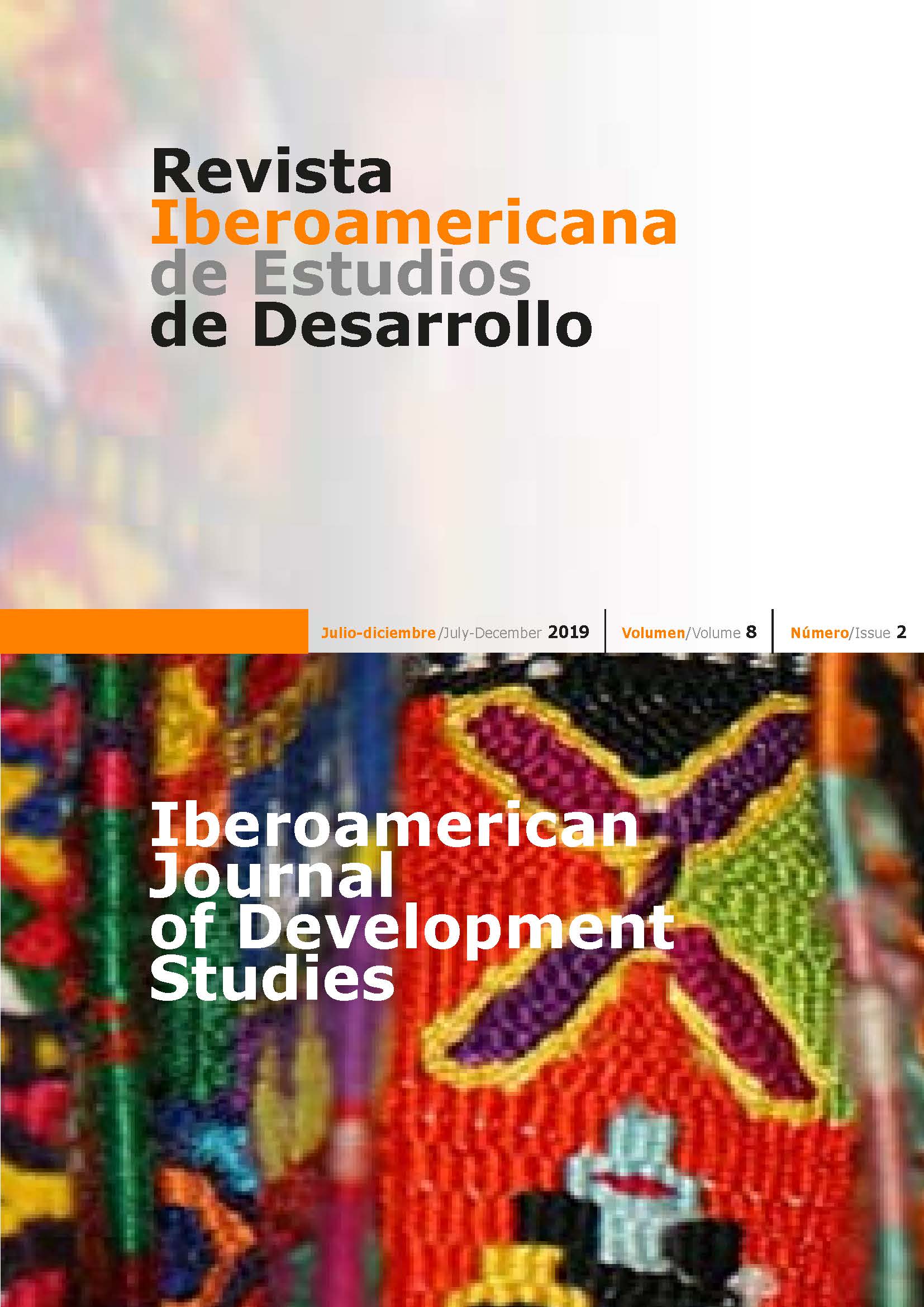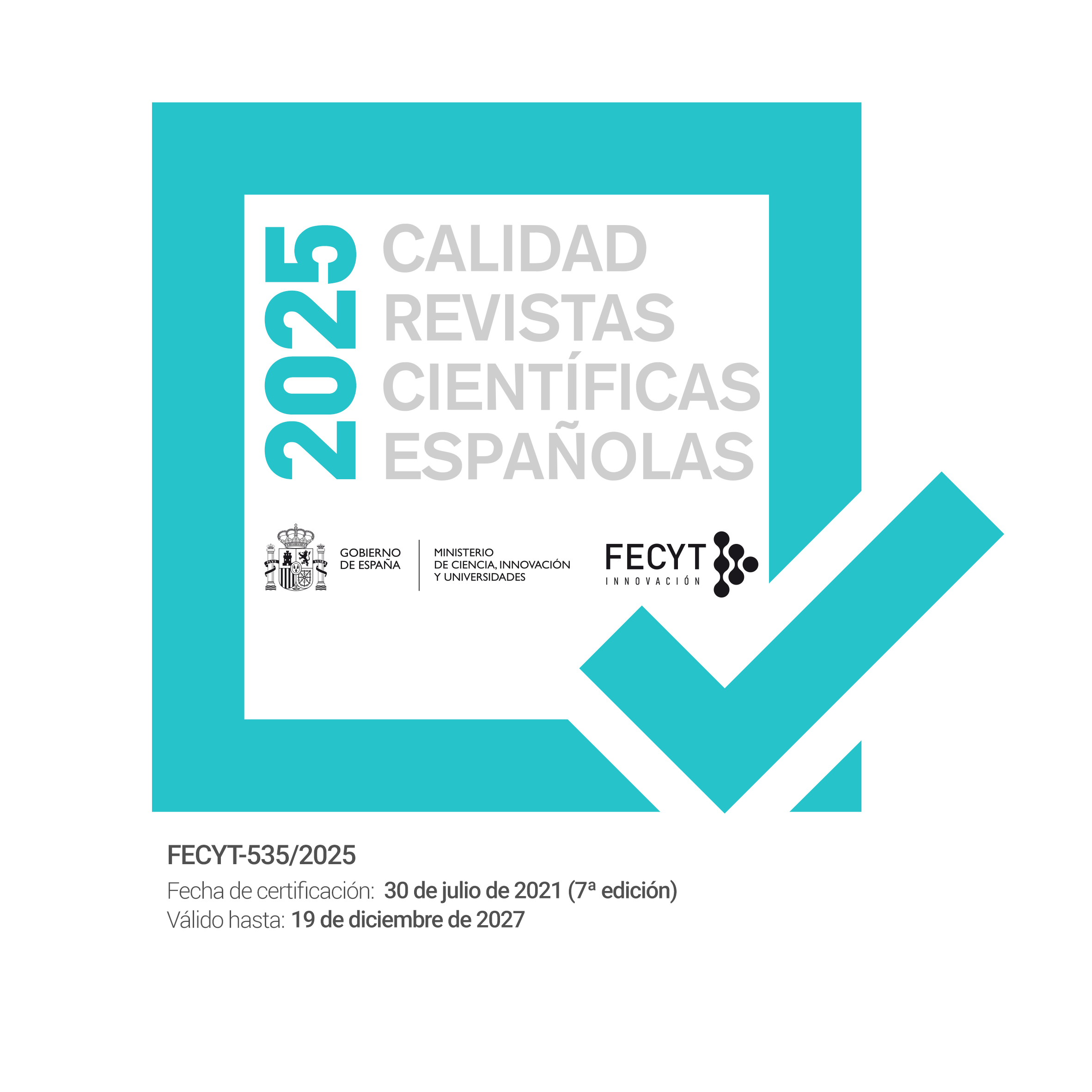La gestión de la ayuda y las políticas públicas para el desarrollo. Estudio del caso de Cabo Verde
DOI:
https://doi.org/10.26754/ojs_ried/ijds.355Palabras clave:
buen gobierno, ayuda al desarrollo, análisis factorial confirmatorio, eficacia de la ayudaResumen
Con este trabajo, se pretende contribuir a la clarificación de las complejas relaciones entre ayuda, gobernanza y desarrollo a partir de la experiencia de Cabo Verde. Con base en una encuesta a expertos y los resultados derivados de la estimación de un modelo de análisis factorial confirmatorio, se constata que, entre las claves del éxito de Cabo Verde, se encuentra el modo en que el proceso de gestión de la ayuda se ha integrado en la estructura de gobernanza del país. Eso ha permitido el liderazgo estratégico nacional (apropiación), criterios claros para los donantes (alineación con los ejes estratégicos nacionales), la coordinación de la intervención de todos los donantes (armonización), la mejora del diseño y ejecución de políticas con base en indicadores (orientación a resultados) y la introducción de hábitos de transparencia y rendición de cuentas en todos los ámbitos relacionados significativos.
Descargas
Referencias
ALONSO JA, GARCIMARTÍN C (2011). Criterios y factores de calidad institucional: un estudio empírico. Revista de Economía Aplicada 19(55):5-32.
ANDERSON RD, KOVACIC WE, MÜLLER AC (2011). Ensuring Integrity and Competition in Public Procurement Markets: A Dual Challenge for Good Governance. In: Arrowsmith S, Anderson RD (eds.). The WTO Regime on Government Procurement: Challenge and Reform. Cambridge University Press, Cambridge, pp. 681-718.
ASKAROV Z, DOUCOULIAGOS H (2015). Aid and institutions in transition economies. European Journal of Political Economy 38:55-70.
ASONGU SA, NWACHUKWU JC (2016). Foreign aid and governance in Africa. International Review of Applied Economics 30(1):69-88.
BAKER B (2006). Cape Verde: the most democratic nation in Africa? The Journal of Modern African Studies 44(4):493-511.
BAKER B (2009). Cape Verde: marketing good governance. Africa Spectrum 135-147.
BOTHA F (2016). The good African society index. Social Indicators Research 126(1):57-77.
BOURGUIGNON F, SUNDBERG M (2007). Aid Effectiveness – Opening the Black Box. American Economic Review 97(2):316-321.
BRÄUTIGAM DA, KNACK S (2004). Foreign aid, institutions, and governance in sub-Saharan Africa. Economic Development and Cultural Change 52(2):255-285.
BUENO DE MESQUITA B, SMITH A (2009). Political Survival and Endogenous Institutional Change. Comparative Political Studies 42(2):167-197.
BURNSIDE C, DOLLAR D (2000). Aid, Policies, and Growth. American Economic Review 90(4):847-868.
BURNSIDE C, DOLLAR D (2004). Aid, Policies, and Growth: Reply. American Economic Review 94(3):781-784.
CARBONE M (2010). The European Union, good governance and aid co-ordination. Third World Quarterly 31(1):13-29.
CHERNICK H, MCGUIRE TJ (1999). The States, Welfare Reform, and the Business Cycle. In: Danziger SH (ed.). Economic Conditions and Welfare Reform Kalamazoo. Upjohn Institute for Employment Research, Michigan.
DJANKOV S, MONTALVO JG, REYNAL-QUEROL M (2008). The curse of aid. Journal of Economic Growth 13(3):169-194.
DOUCOULIAGOS H, PALDAM M (2008). Aid effectiveness on growth: A meta study. European Journal of Political Economy 24(1):1-24.
EASTERLY W (2003). Can foreign aid buy growth? The Journal of Economic Perspectives 17(3):23-48.
ELECTRA (Empresa Pública de Electricidade e Água de Cabo Verde). http://www.electra.cv/, acceso 31 de diciembre de 2017.
EUROPEAN UNION (2007). Communication from the Commission to the Council and the European Parliament on the future of relations between the European Union and the Republic of Cape Verde [SEC (2007) 1415]. COM/2007/0641 final.
FEENYA S, OUATTARA B (2009). What Type of Economic Growth Does Foreign Aid Support? Applied Economics Letters 16(7):727-730.
FIELDING D, KNOWLES S (2011). Dangerous Interactions: Problems in Interpreting Tests of Conditional Aid Effectiveness. The World Economy 34(6):973-983.
GIL J (2005). Aplicación del método Bootstrap al contraste de hipótesis en la investigación educativa. Revista de Educación 356:251-265.
HÁK T, JANOUŠKOVÁ S, MOLDAN B (2016). Sustainable Development Goals: A need for relevant indicators. Ecological Indicators 60:565-573.
HECKELMAN JC, KNACK S (2009). Aid, economic freedom, and growth. Contemporary Economic Policy 27(1):46-53.
HODLER R (2007). Rent seeking and aid effectiveness. International Tax and Public Finance 14(5):525-541.
HOPKINS R, POWELL A, ROY A, GILBERT CL (2000). The World Bank, conditionality and the Comprehensive Development Framework. In: Gilbert C, Vines D (eds.). The World Bank: Structure and Policies. Cambridge University Press, Cambridge, pp. 282-298.
IN’AIRAT M (2014). Aid allocation, selectivity, and the quality of governance. Journal of Economics, Finance and Administrative Science 19:63-68.
KNACK S (2001). Aid Dependence and the Quality of Governance: Cross-Country Empirical Test. Southern Economic Journal 68(2):310-329.
KNACK S, RAHMAN A (2007). Donor fragmentation and bureaucratic quality in aid recipients. Journal of Development Economics 83(1):176-197.
KOSACK S (2003). Effective Aid: How Democracy Allows Development Aid to Improve the Quality of Life. World Development 31(1):1-22.
KWON HJ, KIM E (2014). Poverty reduction and good governance: Examining the rationale of the Millennium Development Goals. Development and Change 45(2):353-375.
LACKERT S (2009). Paris declaration on aid effectiveness. Tesis doctoral.
LEDESMA R (2008). Introducción al Bootstrap. Desarrollo de un ejemplo acompañado de software de aplicación. Tutorials in Quantitative Methods for Psychology 4(2):53-60.
MEYNS P (2002). Cape Verde: an African exception. Journal of Democracy 13(3):153-165.
MINOIU C, REDDY SG (2010). Development aid and economic growth: A positive long-run relation. The Quarterly Review of Economics and Finance 50(2):27-39.
MUSERU M, TOERIEN F, GOSSEL S (2014). The impact of aid and public investment volatility on economic growth in Sub-Saharan Africa. World Development 57:138-147.
NEIRA I (2007). Capital humano y desarrollo económico mundial: modelos econométricos y perspectivas. Estudios Económicos de Desarrollo Internacional 7(2):53-80.
NILSSON M, GRIGGS D, VISBECK M (2016). Map the interactions between sustainable development goals. Nature 534(7607):320-323.
OCDE (2005). Declaración de París sobre la eficacia de la ayuda al desarrollo. Organización para la Cooperación y el Desarrollo Económicos. Apropiación, Armonización, Alineación & Resultados y Mutua Responsabilidad. https://www.oecd.org/dac/effectiveness/34580968.pdf , acceso 31 de diciembre de 2017.
PARK KR (2017). An Analysis of Aid Information Management Systems (AIMS) in Developing Countries: Explaining the Last Two Decades. Proceedings of the Hawaii International Conference on System Sciences, Hawái.
PROYECTO ISLHÁGUA (2018). http://www.islhagua.itccanarias.org/, acceso 12 de agosto de 2018.
RAJAN RG, SUBRAMANIAN A (2007). Does aid affect governance? The American Economic Review 97(2):322-327.
RAJAN RG, SUBRAMANIAN A (2008). Aid and growth: What does the cross-country evidence really show? The Review of economics and Statistics 90(4):643-665.
ROODMAN D (2007). The Anarchy of Numbers: Aid, Development, and Cross-Country Empirics. The World Bank Economic Review 21(2):255-277.
SACHS JD (2012). From millennium development goals to sustainable development goals. The Lance 379(9832):2206-2211.
SCULLY GW (2002). Economic freedom, government policy and the trade-off between equity and economic growth. Public choice 113(1-2):77-96.
SVENSSON J (2000). Foreign aid and rent-seeking. Journal of International Economics 51:437-461.
WOOD B, BETTS J, ETTA F, GAYFER J, KABELL D, NGWIRA N, SAMARANAYAKE M (2011). The Evaluation of the Paris Declaration: Phase 2. Danish Institute for International Studies, Copenhague.
YOUNG A, SHEEHAN KM (2014). Foreign aid, institutional quality, and growth. European Journal of Political Economy 36:195-208.
Descargas
Publicado
Número
Sección
Licencia
Derechos de autor 2019 José Boza-Chirino, Matías M. González-Hernández, Javier De-León-Ledesma

Esta obra está bajo una licencia internacional Creative Commons Atribución-NoComercial-SinDerivadas 4.0.



